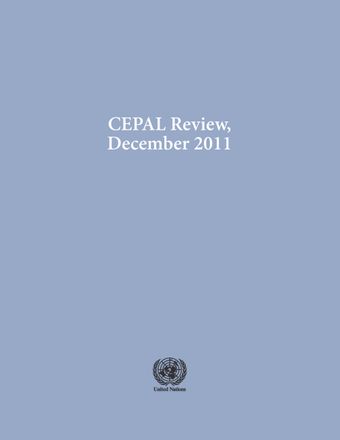-
Technology, trade and skills in Brazil: Evidence from micro data
- Source: CEPAL Review, Volume 2011, Issue 105, Dec 2011, p. 157 - 171
- Spanish
-
- 31 Dec 2011
Abstract
Brazil was characterized by a rapid process of trade liberalization in the 1990s, resulting in a dramatic increase in the volumes of exports and imports since the year 2000. Over the same period, the relative demand for skilled labour has increased substantially. To investigate whether these two simultaneous phenomena are linked is the purpose of this paper. More particularly, this study focuses on the possible impact of domestic technology, capital complementarity and trade openness on the relative demand for skilled labour in Brazilian manufacturing firms, using a unique panel database of Brazilian manufacturing firms over the period from 1997 to 2005. The empirical evidence supports the hypothesis that technology played a role in determining the skill upgrading of Brazilian manufacturing firms. Indeed, the estimations show that domestic technology and capital formation are complements for skilled workers and that imported capital goods clearly act as a skill-enhancing component of trade.





